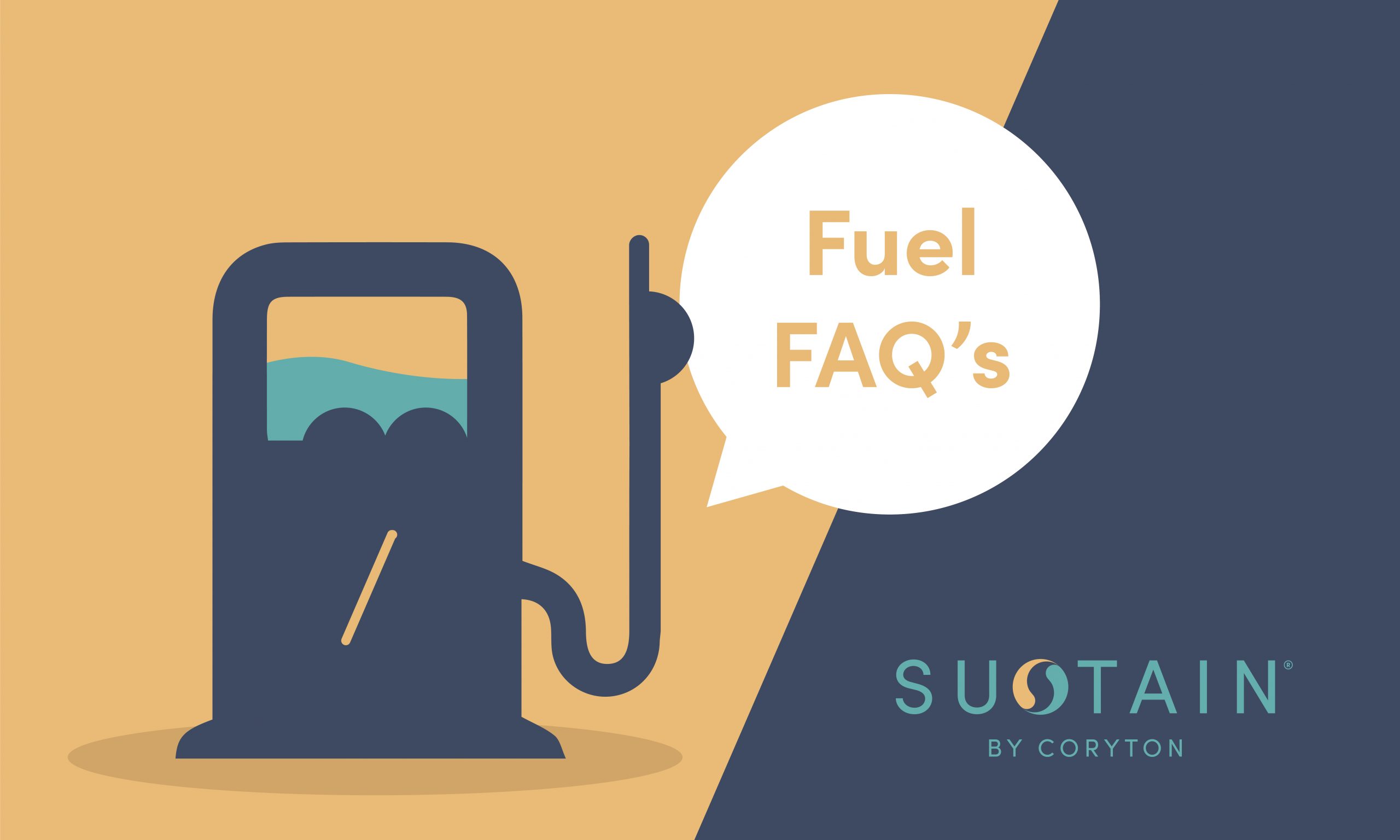
12 April 2022
Fuel FAQ

I’ve heard about E10 in the news. What is E10 fuel?
E10 fuel has been designed to be an eco-friendlier petrol and was introduced to UK filling stations from September 2021. Up until then, the specification was E5 which meant that up to 5% of the fuel could be ethanol or, more specifically, bioethanol i.e. ethanol made from plant products. With E10, up to 10% (with a minimum of 5%) of the fuel at the pump can be bioethanol.
Replacing E5 petrol at the pumps, the Department for Transport (DfT) expects E10 fuel to be the new standard petrol grade. There is a catch though – not all cars will be able to run on it.
Why did the Government decide to introduce E10 fuel?
In a bid to help reduce carbon dioxide emissions in the UK, the Government decided to change the standard grade of petrol from 95% fossil-based gasoline and 5% ethanol (known as E5 at the petrol pumps) to a mix that contains up to 10% renewable ethanol and the rest gasoline.
By increasing the bioethanol content, the level of CO2-based vehicle emissions should be reduced. The Government anticipates that this could cut transport CO2 emissions by up to 750,000 tonnes a year. To put that into a little more perspective, that’s equivalent to taking 350,000 cars off the road.
Can I use E10 fuel in my car?
The Government anticipates that around 95% of petrol-powered vehicles are compatible with E10 fuel. But how do you know if you if your car is compatible with E10 petrol? The good news is that all new cars manufactured since 2011 are compatible with E10 petrol. However, there are some cars that might not be compatible such as:
- Classic cars
- Some specific models of car, with most being manufactured from the early 2000s
- Some mopeds, particularly those under 50cc
If you want to double-check if your car is compatible with E10 petrol, you can use the government’s E10 vehicle checker.
What are sustainable fuels?
Sustainable fuels are those made from renewable and alternative raw material in replacement of petroleum-based fuels that comply with sustainability criteria (land use, water footprint, etc.). Sustainable fuels are a key pillar to reduce GHG (greenhouse gas) emissions.
Why is sustainable fuel so important?
The combustion of fossil fuels for energy results in a significant amount of “new” or extra greenhouse gas emissions that contribute to global warming. This is because the carbon that was locked away deep underground in oil and gas is released into the atmosphere as CO2 when burned. Most sources of renewable energy result in little to no emissions because, instead of releasing additional CO2, they either release none at all or, as for sustainable fuels, CO2 from carbon that has been recycled. However, it is very important that one considers the full life cycle of GHG emissions from these technologies when making comparisons.
Is fuel from a major oil company the same as a supermarket?
Yes and no. All over the world major oil companies and distributors buy and sell products under complex exchange agreements, as having completely independent fuel infrastructure per company would not be viable.
What generally differentiates companies is the fuel treatment packages (additive- or add-packs), which are developed to improve a range of properties of fuel. Each add-pack can be designed to target specific properties of fuel to give it the “edge” over its competitor. You’ll generally find these add-packs in fuels that are a little more expensive.
Do all fuels behave the same?
No. The composition of fuels, although within a national legislative specification, such as EN228 (gasoline) and EN590 (diesel) vary wildly over regions, not just country to country, but also between counties.
The reason for this is down to a mix of economics, the chemical make-up of the crude from which the product is derived, as well the type of facility used to refine the fuel. These sometimes subtle changes can impact the behaviour in combustion, which in turn impacts the efficiency of the vehicles.
Car manufactures go to great lengths to protect against these variances by running vehicles on different fuel types, in controlled conditions, for thousands of hours.
Will my car be more powerful if I use high octane fuel?
This depends on the engine technology your car is using. Hardware and fuel need to match with each other to get maximum power. High performance engines often operate with high compression ratio to enhance the efficiency of the combustion process. High compression level increases the willingness to ignite of the fuel/air mixture in the combustion chamber which needs to be kept well controlled to avoid harmful effects like knocking or even low-speed pre-ignition (LSPI). High octane fuels are more resistant to these type of effects, thus enabling high performance engines to optimise the combustion process by adjusting injection and ignition timings and to deliver maximum power to the driver. If the engine is not designed for high performance and is operating in lower speed and compression levels, a high-octane fuel wouldn´t help to get more power. The engine simply wouldn´t be physically able to take advantage of the fuel’s properties.
Do alcohols like ethanol and methanol have less energy?
Yes! There is slightly less energy in each litre of methanol and ethanol compared to petrol. This means you need to use slightly more methanol/ethanol to generate the energy you need to propel the vehicle. As a result you may see a slight reduction in either performance or fuel economy of a vehicle (in terms of miles per gallon, for example). However, at an E10 level, the values we allude to are largely insignificant in the real world.

